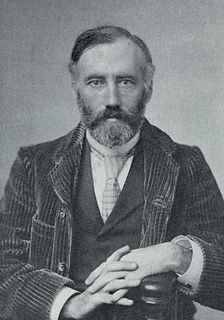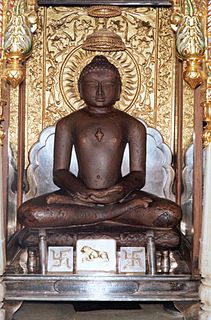A Quote by Frederick Lenz
Buddhists understand that today and all other days have turned out the way they have because of karma. The interconnection of one moment with another moment, of one action with another action, is karma.
Related Quotes
There is good Karma, there is bad Karma, and as the wheel of life moves on, old Karma is exhausted and again fresh Karma is accumulated... Karma is twofold, hidden and manifest, Karma is the man that is, Karma is his action. True that each action is a cause from which evolves the countless ramifications of effect in time and space... To the worldy man Karma is a stern Nemesis, to the spiritual man Karma unfolds itself in harmony with his highest aspirations.
What brings the karmic result from the patterns of our actions is not our action alone. As we intend and then act, we create [our] karma: so another key to understanding the creation of karma is becoming aware of intention. The heart is our garden, and along with each action there is an intention that is planted like a seed. The result of the patterns of our karma is the fruit of these seeds.
At the moment of death, there are two things that count: whatever we have done in our lives, and what state of mind we are in at that very moment. Even if we have accumulated a lot of negative karma, if we are able to make a real change of heart at the moment of death, it can decisively influence our future, and transform our karma, for the moment of death is an exceptionally powerful opportunity to purify karma.
Karma is not something pessimistic. If you think of karma as something wrong, you are seeing karma only according to what happened in the past. You look at the past and karma becomes a monster. So you should also look at karma in the present and future. Then karma becomes something very wide and really alive. Through karma you can understand what your destiny is. Destiny itself has no solid form; it's something you can create. You can create your life. That is why we study karma.
The concept of karma is a beautiful concept in Sanskrit. The whole idea of karma is that every being has an innate tendency - the karma of ice is to be cold, the karma of fire is to burn, the karma of the trees is to grow and bear fruit. In the same way, a human has a certain thrust. What I've realized is that my thrust is to be in the world, like in the world of business.
Karma is the record of services. Karma is the term used in Buddhist teaching. Taoists use the term te. Christians us the term "deed." Many other spiritual beings use the term "virtue." Karma, te, deed, and virtue are the same thing but in different words. To understand karma is to understand all of these words.
My greatest personal mistake is ever to allow a word or moment that “doesn’t count,” i.e., that I do not refer to my own basic principles. Every word, every action, every moment counts. (This is the pattern on which everybody makes mistakes [or] becomes irrational — not relating their one action or one conviction to another.































